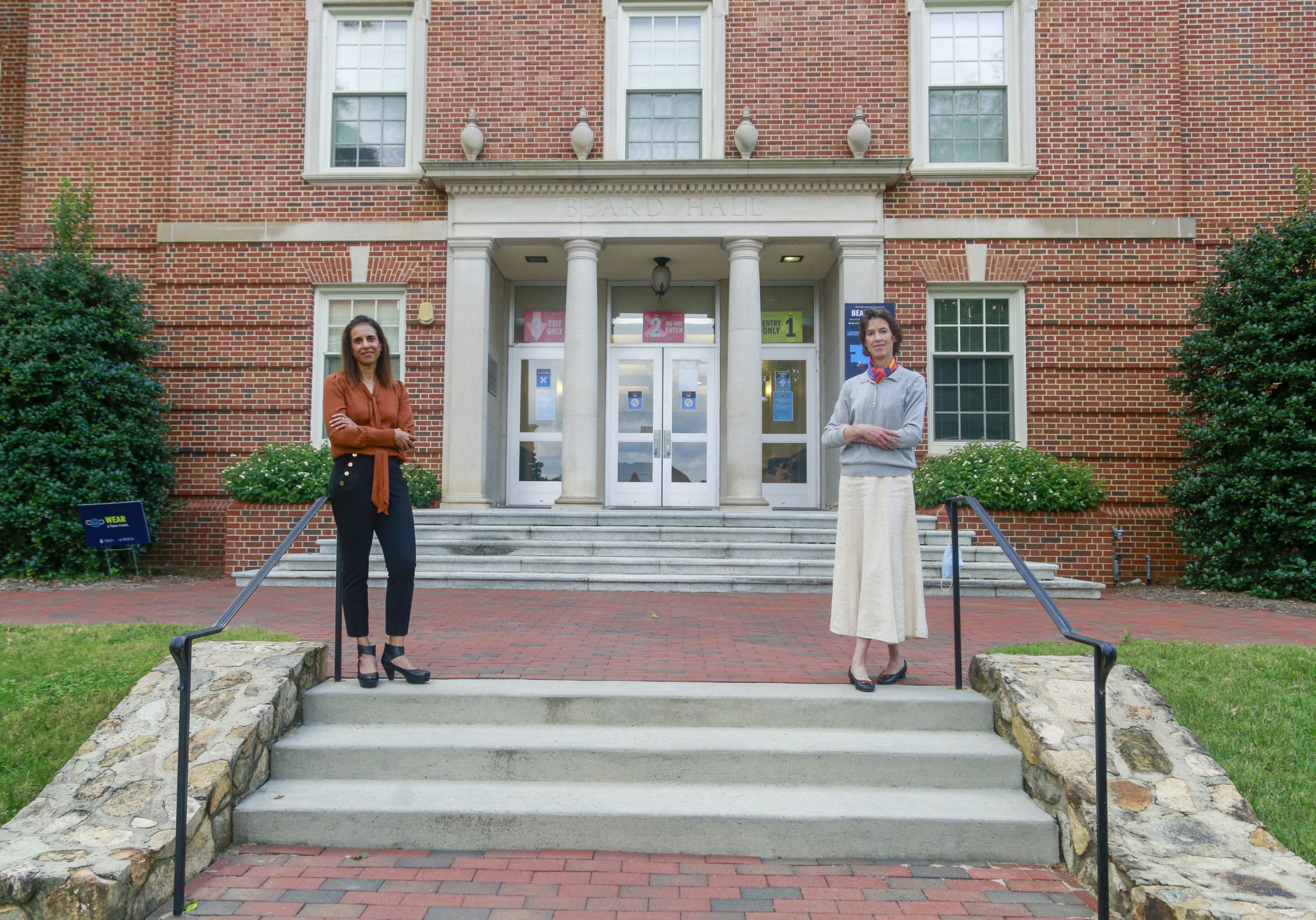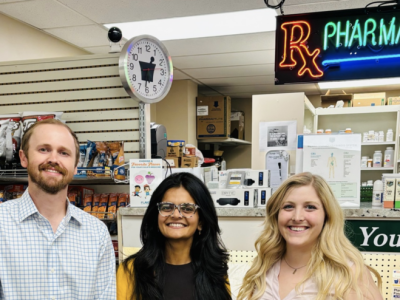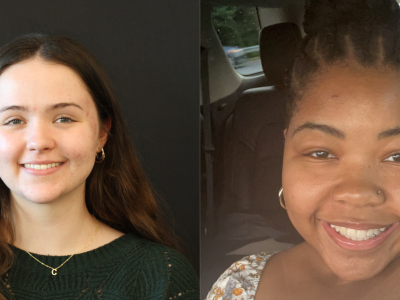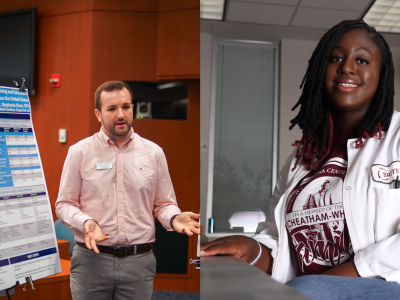October 26, 2020

Marianne Muhlebach, MD, with UNC’s Department of Pediatrics.
More than 30,000 people in the United States are living with cystic fibrosis and an estimated 1,000 new cases are diagnosed each year, according to the Cystic Fibrosis Foundation Patient Registry.
Cystic fibrosis (CF) is a genetic disease that affects glands in all body systems and can lead to recurrent and chronic bacterial infections of the lungs, or premature death.
That’s why Gauri Rao, Pharm.D., M.S., with the UNC Eshelman School of Pharmacy and Marianne Muhlebach, MD, with UNC’s Department of Pediatrics are joining forces with their respective expertise to find better ways to treat those chronic infections.
The research duo recently received a $30,000 grant from the Friends Fighting Cystic Fibrosis in Chapel Hill to support their work. This generous support is thanks to a family whose child is receiving care at the UNC Children’s Cystic Fibrosis Center.
With the funds, Rao and Muhlebach will begin to test if antibiotics that physicians do not usually use in combination would be effective and potentially easier to tolerate for cystic fibrosis patients.
“This is a wonderful collaboration between the schools, as well as to translational research,” Muhlebach said. “I see these children [fighting cystic fibrosis] in the clinics and hospital, and I see them struggling. While there have been fantastic advances, there are still many that battle the chronic infections.”
Rao specializes in designing and optimizing antibiotic treatment against highly resistant bacteria, but this will be her first introduction to cystic fibrosis. She will be mentored by Muhlebach, a pediatric pulmonologist with research expertise in cystic fibrosis, as well as other lung diseases.
To use currently approved antibiotics in the best way and to minimize side effects, Rao and Muhlebach will use a novel in vitro model of infection called a hollow-fiber infection model over 14 days to evaluate the killing of Pseudomonas aeruginosa with the antibiotic combinations. Pseudomonas aeruginosa is a key bacterial pathogen in cystic fibrosis, given its high prevalence and ability to evade antibiotic treatment, Rao said.
Rao said by testing the outcomes of combinations of antibiotics as treatment for cystic fibrosis, she hopes to in turn extend the life of currently approved antibiotics.
“I am driven by the passion of clinicians like Dr. Muhlebach,” Rao said. “Together, we will get to look directly at patient data, test antibiotics in our in vitro systems and make a difference.”
Latest News

Pharmacy Internship Educates While Expanding Rural Health Care

Early Assurance Program inspires students from small towns


